Common London Tourist Mistakes: Tips to Avoid When Visiting
Are you traveling to London and want to avoid common London Tourist Mistakes? Read on!
Navigating the bustling streets of London is a wonderful experience that’s not without its pitfalls. As one of the world’s most iconic cities, it offers a variety of historic landmarks and cultural experiences.
However, without proper planning and insights into local customs, tourists can find themselves caught in common traps that waste time and money and diminish the overall experience. Knowing London travel’s do’s and don’ts can transform your visit from a typical tourist experience into a savvy and memorable adventure.
Smart travel in London extends beyond the iconic red buses and phone booths; it’s about immersing yourself in the city while bypassing the inconveniences that can trip up even the most seasoned travelers.
From the most efficient ways to use public transport to understanding the nuances of dining out and interacting with locals, every aspect of your trip is an opportunity to journey smarter.
Making informed decisions about where to go, what to see, and how to manage your travel budget will ensure your visit to London is as enriching as enjoyable.
Affiliate Disclaimer: Some links on this blog are affiliate links. This means that, at no additional cost, the author may earn a small commission if you purchase through these links. As an Amazon Associate, I earn from qualifying purchases.

Getting Around London
Navigating London’s extensive transport network is key to exploring the city effectively. It’s essential to understand the various options, such as the London Underground, buses, and cabs, and how to pay for your journeys using an Oyster card or contactless payment.
Understanding Public Transportation
The backbone of London’s public transit system is its network of buses and the London Underground. You can pay as you go using an Oyster or contactless payment card.
It’s important to know that buses only accept Oyster cards or contactless payments—cash is not an option. Always check the balance on your card to ensure a smooth journey, and be aware of the different bus routes to plan your travels accordingly.
Navigating the London Underground
The ‘Tube,’ as it’s affectionately known, is the quickest way to get around London. Familiarize yourself with the map to know which tube stations you’ll need. Tap your Oyster card or contactless payment card on the yellow card reader when passing through the ticket barrier.
Always have your Oyster card or contactless payment card ready when entering and exiting the turnstiles, not holding up the flow of people.
Remember, when using the escalators, stand on the right side and walk on the left side to allow others to pass by. This keeps foot traffic flowing and avoids potential frustration from hurried locals. Remember to tap out as you exit the tube station.
If possible, avoid using the tube and buses during Rush Hour.
Beware that the underground does not run 24 hours a day. Plan your travel based on the time of day you will arrive or depart.
London’s Iconic Black Cabs
You may opt for one of London’s iconic black cabs for convenience. Hailing a cab can be a quick solution when you’re not near a tube station or bus stop.
While they can be more expensive, they offer a direct route to your destination and can be particularly useful if you are traveling in a group or with heavy luggage. Remember, London cabs accept cash and card payments, making it easy to pay in whatever way suits you best.
Besides the expense, another downside to taking cabs is that the traffic in London is quite congested. It would have been often faster to walk or take public transportation. Avoid using Black Cabs or Uber everywhere you go, use them sparingly.
Airport Transfers
Avoid taking Uber or Black Cabs from the airports. London is a large city, and the airports are not close to London Central. It will cost over 100 pounds to get from the airport in a Black cab. Instead, take the new Elizabeth Line, Piccadilly Line, or the Heathrow Express from Heathrow.
Walking around London
Don’t underestimate the amount of walking you will do while exploring London. Even if you take public transport, you will be amazed at how many steps you accumulate during sightseeing.
Wear comfortable shoes that have been broken in. Don’t start wearing a brand-new pair during your travels, or you will experience blisters.
Don’t assume public transportation is the fastest way to get somewhere. Sometimes, it will be quicker to walk. Using City Mapper is recommended. It will give you all the options and the time it will take. Besides, by walking, you get to explore more of London!
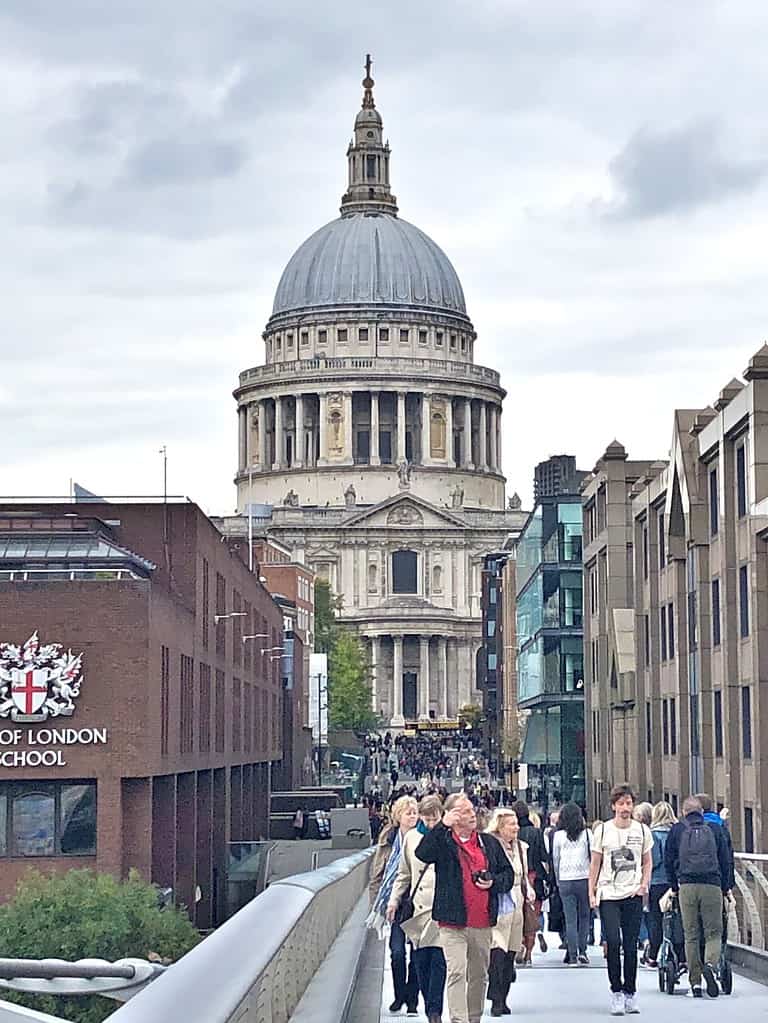
Major Attractions and Sightseeing
When visiting London, efficiently planning your sightseeing can enhance your experience. Key attractions like the London Eye and Buckingham Palace draw large crowds, but with a bit of savvy planning, you can enjoy them without the hassle.
Timing Your Visit
Book time slots for popular attractions in advance to make the most of your time in London. Attractions such as the London Eye offer fast-track tickets, which allow you to bypass the main queue. For places like Westminster Abbey or the Tower of London, visiting early or late in the day can mean fewer crowds. Certain museums, including the British Museum and the National Gallery, have extended hours on certain days, allowing you to explore when it’s less crowded.
London’s Must-See Landmarks
Your trip to London wouldn’t be complete without seeing landmarks like Big Ben, Tower Bridge, and Trafalgar Square. While these are easily accessible, the actual timing of your visit can impact your experience. For example, Buckingham Palace has the Changing of the Guard ceremony, a spectacular display that can be quite crowded. To catch a glimpse without the squeeze, standing further down the mall or at St. James’s Park can offer a better view with more space.
- Big Ben: Visible from many places but best seen from Parliament Square.
- Tower Bridge: Walk across the high-level walkways to experience stunning views.
- Buckingham Palace: Witness the Changing of the Guard without the crowd by arriving early and viewing from the Horse Guard Parade.
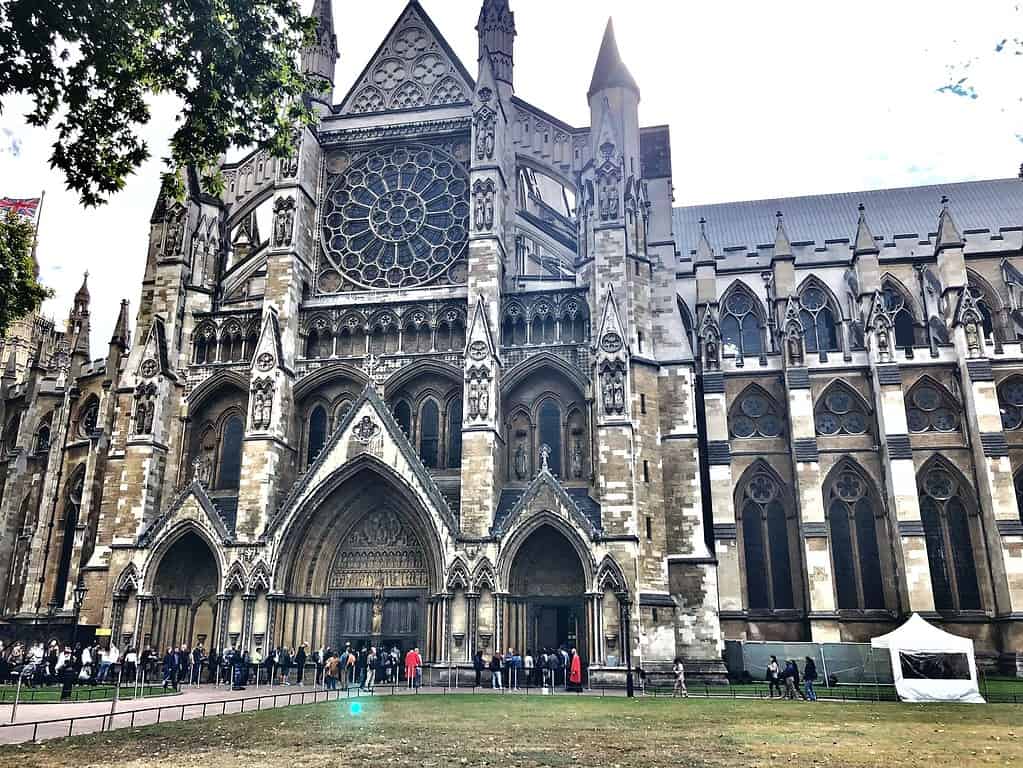
Exploring Beyond Central London
While Central London houses iconic structures, exploring beyond can lead to hidden gems. The City of London is home to historical buildings like St. Paul’s Cathedral, blending with the modern skyline. Don’t miss out on the unique collections at the Natural History Museum and Victoria & Albert Museum, or take a breather in the vast expanse of parks like Hyde Park or Richmond Park. Venturing further into the neighborhoods can provide a broader view of what London offers.
- Natural History Museum: Enjoy not just the exhibits but also the magnificent architecture.
- City of London: Combine modern finance and ancient history in one fascinating stroll.
Explore London’s neighborhoods, such as Shoreditch, Kensington, Bermondsey, Notting Hill, and Greenwich.
If you are visiting for more than a week or this isn’t your first trip to London, take a train into the countryside to explore. England is more than just London. Many towns close to London are worth exploring as day trips.
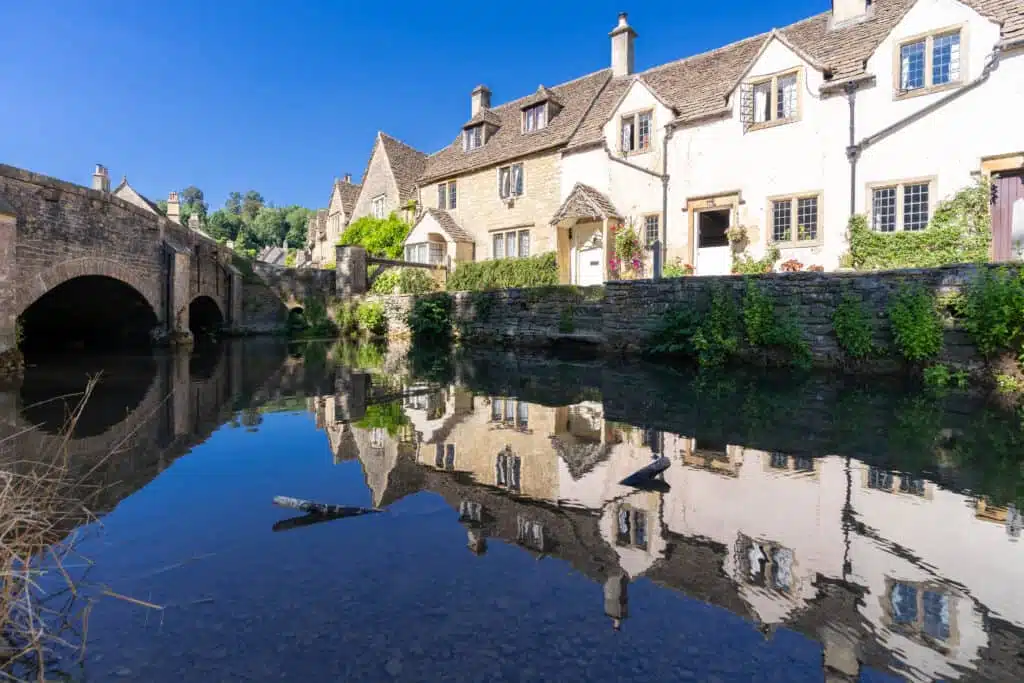
Money-Saving Tips
Exploring London doesn’t have to drain your wallet. Strategic planning allows you to enjoy your visit without spending a small fortune. Here’s how to save on expenses and still have a memorable trip.
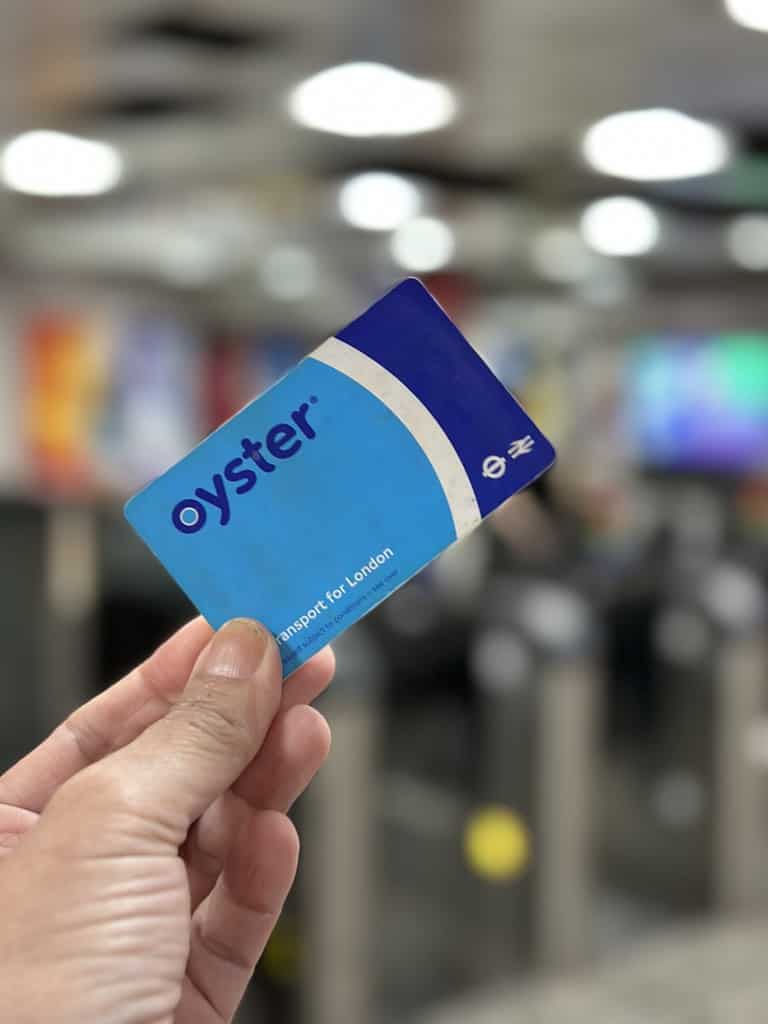
Avoiding Unnecessary Expenses
One big mistake when in London is paying too much for transportation. Use an Oyster card or contactless payment instead of individual tickets to save on every tube ride. Oyster cards cap your daily spending and are typically cheaper than single-journey tickets. Don’t purchase a Travelcard; reaching the daily cap with the Oyster Card or contactless payment is usually cheaper.
Also, avoid the high service charges added at restaurants by checking your bill—tipping is often included, and additional tips aren’t a local norm.
Making the Most of Free Attractions
You’ll be pleased to discover that many of London’s iconic attractions won’t cost you a penny. From the historic halls of the British Museum to the contemporary Tate Modern, enrich your travel experience without touching your wallet. Remember, it’s a mistake to assume all cultural experiences are pricey—in London, some of the best things truly are free!
Dining in London
When visiting London, experiencing authentic British cuisine and finding the right places to eat should be a part of your adventure. Be mindful of where you dine to avoid spending more than necessary and to truly enjoy what the city has to offer.
Experiencing British Cuisine
You’ll find that trying a full English breakfast is an absolute must to kick-start your day. It’s a hearty plate often comprising eggs, bacon, sausage, beans, toast, and sometimes black pudding. For a true taste of tradition, don’t miss out on Yorkshire pudding or a Sunday roast—these dishes are beloved across the country and are a weekend staple in many London pubs.
- Full English Breakfast: Often served all day in classic ‘greasy spoon’ cafés or pubs.
- Yorkshire Pudding: Best enjoyed with roast meats and gravy.
- Sunday Roast: Typically features roast beef, roast potatoes, vegetables, and Yorkshire pudding.
Note that most pubs will not have table service. To order, go to the bar and give the bartender your order.
Don’t underestimate London’s food scene
If you’re roaming the streets, explore the city’s food markets. For instance, Borough Market or Southbank Centre Food Market is a haven of fresh produce and gourmet foods; it’s perfect for sampling artisanal treats and British classics.
For those who love a good brew, the plethora of coffee shops in London offers a cozy haven to recharge with a quality cup of coffee.
London is known for its quality Indian, Italian, and Asian cuisines. Don’t limit yourself to just British or Pub food.
Avoiding Overpriced Tourist Spots
To avoid overpaying, choose a place to eat that is a step away from the main tourist areas. Try to eat away from Leicester Square and Covent Garden, where most tourists will spend their time. You’ll often find better pricing and more authentic dining experiences outside the tourist zones.
Don’t fall for tourist traps such as Madame Tussaud’s, M&M World, and the Shrek Experience. There is so much to see in London that these generic places should not be on your must-see list.
Be aware of the service charge many restaurants add to your bill, typically around 12.5%. However, it’s discretionary, so you cannot pay if the service doesn’t meet your expectations.
- Service Charge: Check your bill to see if it’s included so you can tip accordingly.
- Off the Beaten Path: Seek out dining spots where locals eat to find quality food at better prices.
By following these tips, you’ll discover the delightful array of British culinary offerings and make your dining experiences in London as memorable as the sights.
Cultural Etiquette and Social Norms
When visiting London, you’ll enjoy your trip much more if you’re familiar with some local politeness and customs regarding social conduct. From the importance of “please” and “thank you” to the expectation of keeping personal space, understanding these unwritten rules will ensure you blend in with the locals.
Understanding British Politeness
In the United Kingdom, politeness is paramount, and British English is speckled with pleasantries and formalities. Always say “please” and “thank you” whether you’re requesting directions to the British Museum or being handed your admission ticket at Westminster Abbey.
Another crucial aspect of polite interaction is apologies. Even if you haven’t made a mistake, saying “sorry” when moving past someone or if there’s a minor bump is standard practice and is seen as a sign of good manners rather than an admission of fault.
Queueing and Personal Space
Queueing is a fundamental part of British etiquette. Whether it’s waiting for a bus or queuing for a ticket at a tourist attraction, cutting in line is a serious faux pas. You should always wait for your turn and be patient.
The concept of personal space is also highly valued; maintain a respectful distance between yourself and others in lines, on public transportation, and in busy areas.
Remember, on escalators, especially those in tube stations, stand on the right side and walk on the left. Standing on the wrong side of the escalator can disrupt the flow and potentially annoy hurried Londoners. This unwritten rule helps minimize congestion and allows for a more efficient transit experience.

Shopping and Leisure
When exploring London’s vibrant shopping scene and leisure opportunities, you’ll find everything from iconic streets like Oxford Street to charming markets like Borough Market. Remember to carry some two-pound coins; they are helpful for small purchases.
One mistake tourists make is not using their coins. British coins can be worth one or two pounds; no one-pound banknotes exist. Bank notes start at five pounds.
Don’t expect to be able to spend cash everywhere. London has embraced becoming contactless, and many places don’t accept cash.
Visiting Markets and Shopping Streets
Oxford Street is a bustling hub known for its wide array of retailers, from flagship to renowned department stores. Liberty of London, Carnaby Street, Bond Street, and Regent Street are known for shopping. Consider shopping on a weekday morning or late evening to avoid the crowds.
- Tip: Keep an eye out for “tax-free” signs if you’re a visitor from outside the EU—you could save on VAT.
Leisurely Explorations
For a more leisurely day, stroll up to Primrose Hill for a panoramic view of the city skyline—ideal for that picture-perfect moment. Piccadilly Circus is another must-visit for its vibrant display of digital screens and the Statue of Eros, a famous meeting point.
Leisure Spots to Visit:
- Primrose Hill: Relax and enjoy the view
- Piccadilly Circus: Immerse in the bustling square

Planning Your Itinerary
Crafting the perfect itinerary for your London adventure is essential. Consider the city’s varied attractions and how long you’ll want to spend at each to ensure your trip is as fulfilling as possible.
Allocating Enough Time per Attraction
You must give yourself plenty of time at each attraction to fully appreciate it. London’s major sights often have much more to offer than meets the eye. For example, the Tower of London isn’t just about the Crown Jewels; it’s a complex with a history worth several hours.
Schedule morning visits to popular spots to avoid the rush hour influx. Consider visiting high-profile attractions like the British Museum later in the afternoon when it’s less crowded. By visiting during off-peak hours, you can dodge the crowds and have a more tranquil experience.
Know the local Holidays and Bank Holidays
As you plan, consider what holidays might occur during your stay. On some holidays, it might be hard to find places to dine and common tourist sights might be closed. This might also affect the prices of hotels and airfare.
Balancing Indoor and Outdoor Activities
London is a big city that is teeming with diverse experiences regardless of the time of year. Balance your itinerary with indoor and outdoor activities to make the best of London’s unpredictable weather. Always carry an umbrella to be prepared.
A great way to explore London for the first time is by mixing iconic indoor places like Westminster Abbey with a leisurely walk along the South Bank.
If the weather permits, plan a day trip to outdoor spaces like Kew Gardens, but have an indoor backup like the Tate Modern in case of rain. Remember, outdoor spots can get crowded during peak tourist seasons, so it’s best to visit early or later in the day to avoid many people.
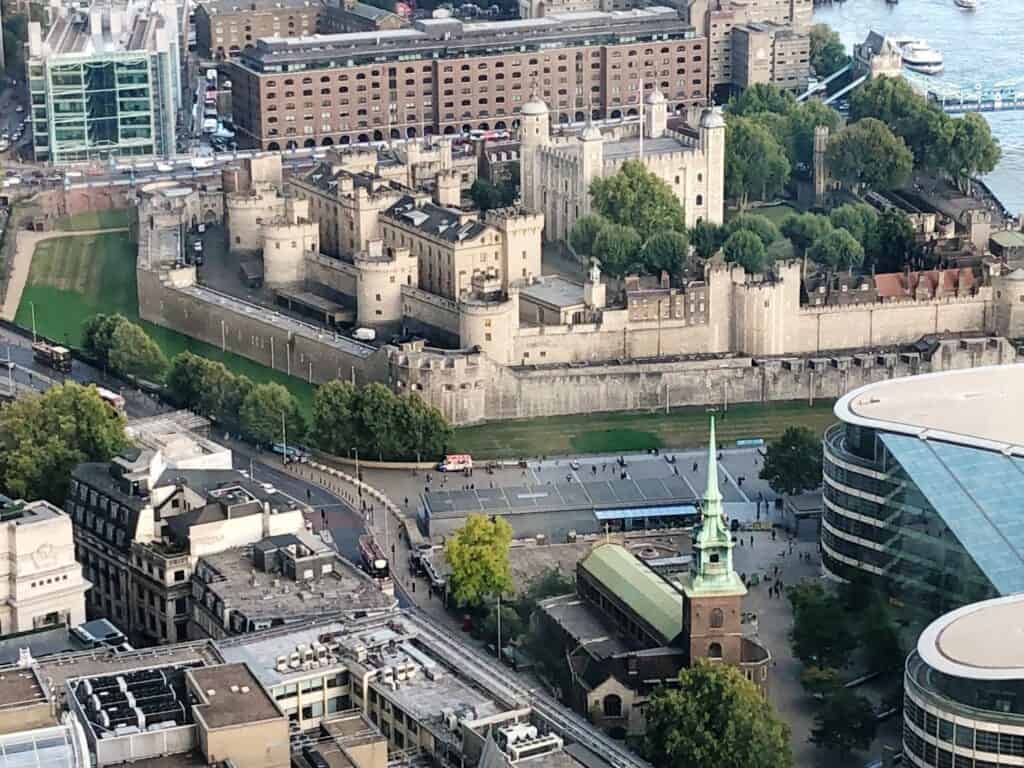
See the London Skyline from Above
Don’t leave London before you view its skyline from above. The London Eye is the most obvious choice. The Shard is on the London Pass, but there are many places to see London’s skyline for free!
Visit Primrose Hill, Sky Garden (a ticket is needed for a timed entry, but it is free), 8 Bishopsgate, Tate Museum, and 22 Bishopsgate, which offer excellent views for free.
Don’t underestimate Jet Lag
Remember that you will be jet-lagged if you travel from the United States to London. Try to get into their time zone as soon as possible. Stay awake until at least 8 p.m. local time on the first day.
Also, don’t plan too much for your first day, especially places where reservations are needed. Beware that your flight might be delayed, and you might miss a reservation if it is planned for the day you arrive.
Booking.comChoosing Accommodations
To save money, avoid staying too far from Central London. Use City Mapper or Google Maps to estimate how long it will take to arrive at the must-visit places from your accommodations. Don’t spend your valuable vacation time commuting.
When choosing a hotel, look for the distance to an underground station.
Many London hotels will not have central air conditioning. If that is a priority for you, and you are visiting during warmer months, make sure that your accommodations have central air conditioning.
Another complaint many Americans make is the lack of washcloths in non-American chain hotels. If those are important to you, pack a few with you, as they are not common in England.
Visiting London and Want more inspiration?
- Ultimate 5 days in London Itinerary for first-time Visitors
- 30 London Myths and Urban Legends Debunked
- Best Day Trip By Train from London Under 3 hours- 2024
- 37 Surprisingly Common Travel Mistakes and How To Avoid Them
- How to survive a long-haul flight
Technology and Connectivity
In the cityscape of London, staying technologically connected is key to a smooth experience. From navigating the streets to managing your itinerary, technology offers the best options for efficiency and convenience.
Staying Connected
To ensure you’re always connected, purchasing a local eSIM card for your mobile phone can be more cost-effective than roaming charges. Airalo is recommended when purchasing an eSIM.
Look for SIM card offers at the airport or local shops. These often include a data package that enables you to stay online.
Public Wi-Fi is available in many locations, but an eSIM or SIM is the best security and continuous access option.
Leveraging Apps and Maps
Using apps like City Mapper or Google Maps is indispensable for getting around. It provides directions and real-time updates on public transportation schedules and routes.
Before you travel, download the London area map offline to ensure you can navigate without data if needed.
For payments, preload a credit card onto your phone’s wallet app to conveniently tap in and out of the tube using contactless payment systems. Many ticket machines accept cards, but having a backup on your phone can save time and hassle.

Safety and other Common Tourist Mistakes for visiting London
London is a fairly safe city. As a solo traveler, you should not feel uncomfortable visiting. But you should be aware that it is a large city and always consider your surroundings.
Pickpockets and theft
Beware of pickpockets, especially near tourist sights. The Changing of the Guard is one of the places pickpockets like to target.
Don’t leave your cell phone on the table while dining outside the café. There have been incidents of grab and run.
Beware of your surroundings while walking with your phone in your hand; people riding bikes will grab your phone as you walk down the street.
Be mindful while Walking
Remember that the UK drives on the left side of the road, not the right. When crossing the crosswalk, look in the correct direction.
Don’t stand too close to the curb. Buses will drive alongside it, and they have large mirrors.
Stand a couple of feet away from the curb. Also, look in both directions. Approximately four people are killed by buses each week.
Being a respectful tourist
Don’t stand close to the King’s Guard and their horses. They are on duty, not just for display.
Don’t get too close while trying to take a photo. They are not supposed to react or talk to you, but if you do, they will yell at you.
Know the difference between London Bridge and Tower Bridge. Tower Bridge is often mistaken for London Bridge.
Final Thoughts on Common Tourist Mistakes for London
In conclusion, as you plan your adventure to London’s historic and vibrant city, remember to avoid common tourist mistakes by keeping these key takeaways in mind.
Plan your journeys to navigate the public transport system easily, ensuring efficiency and economy.
Dare to explore beyond the iconic landmarks to uncover the true essence of London’s local neighborhoods and hidden gems.
Embrace the local dining options and customs, allowing yourself a deeper cultural immersion that will undoubtedly enrich your travel experience.
By following these simple guidelines, you’ll craft a London visit that’s as rewarding as it is unforgettable, with memories you’ll treasure for a lifetime.
Frequently Asked Questions About London Tourist Mistakes.
In this section, you’ll find advice on navigating common uncertainties about etiquette, attire, planning, and more when visiting London.
Remember to stand on the right when using escalators, allowing people to pass on the left. Forming an orderly queue at bus stops, ticket counters, and when boarding public transport is also considered polite.
London’s style is quite eclectic but leans towards smart-casual. To prepare for changeable weather, opt for layers, comfortable walking shoes, and an umbrella or waterproof coat. Don’t wear Wellies in London. They are meant for the countryside, not an urban city.
A minimum of four days is recommended to explore London’s main attractions, but ideally, allocate a week to experience the city more fully without rushing. We don’t recommend exploring the countryside until you have spent a week exploring London.
It’s best to avoid staying in accommodation far from central London, as these may have fewer transport links, making it difficult to travel to popular sights. One common mistake is choosing accommodations too far away because they are cheaper. Unfortunately, valuable vacation time will be wasted commuting into and out of London Central.
Avoid bringing bulky electronics or heavy books, as these can become cumbersome. Ensure electrical items are compatible with UK voltage and plug sockets.
Firstly, take advantage of the extensive public transport network. Also, many museums are free, so visit some world-class institutions like the British Museum or Tate Modern.



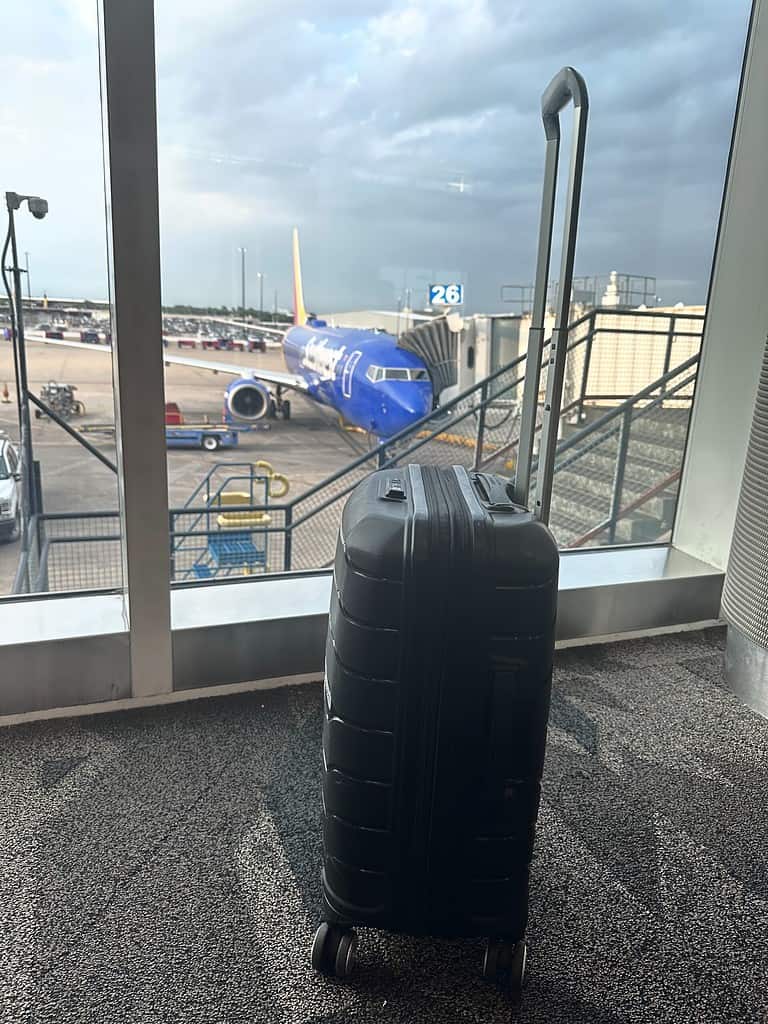



Thanks for the detailed information. London is anyways my next destination
Great article with a lot of useful tips. I personally love the “personal space” rule and I wish other countries would implement that too (better than being packed like sardines… if you ask me). Thanks for sharing!
It is an interesting read! I have never been to London but I would visit one day. Probably we will always make mistakes during traveling but it is nice to be prepared.
Very good informations. I might add London on my bucket list for our next trip
Love this! I’ve been to London once and it was absolutely beautiful. Can’t wait to go back!
Really useful insights on navigating London like a pro! It’s so easy to fall into the tourist traps, so these tips are golden to get the most out of their visit. Appreciate the heads-up on what to watch out for!
We’re visiting London this summer. Thanks for the comprehensive recommendations and tips.
Very informative! Thank you for this extensive list of tips!
My husband and I visited London in February of 2023 and LOVED it. The “tube” was a lifesaver and so easy to use!